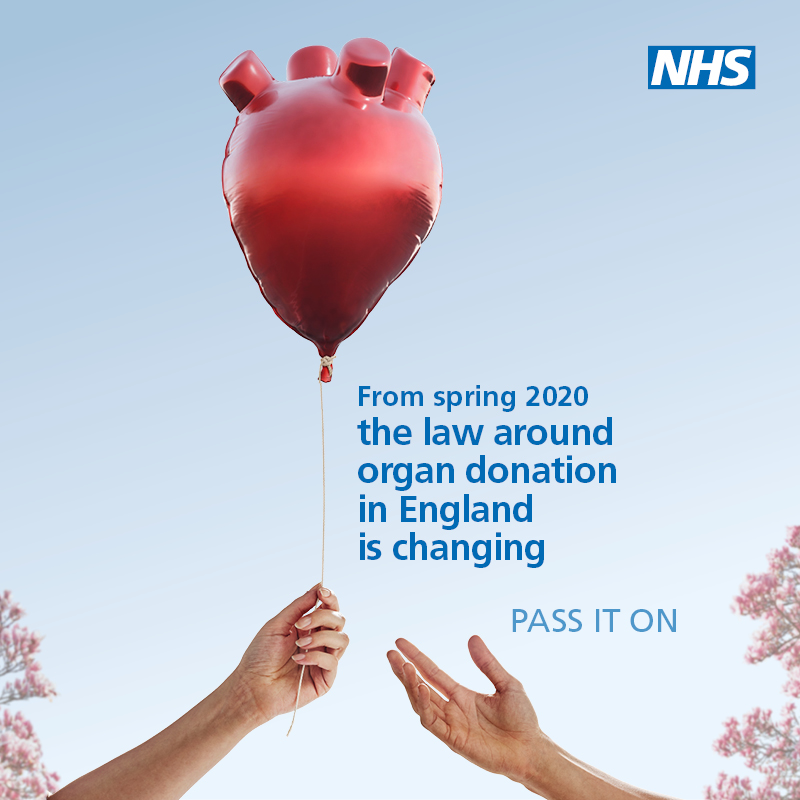On 20 May, an opt-out system for organ donation was introduced in England.
The Catholic Church has consistently encouraged its followers to consider organ donation. The act of donating organs before or after death has been considered a gift and an intrinsic good. However, a system of presumed consent risks taking away the right of the individual to exercise this decision, and therefore potentially undermines the concept of donation as a gift.
Following the change in the law, all adults in England will be considered donors in the event of death, unless they have recorded a decision not to donate or are in one of the following excluded groups: those under the age of 18; people who lack the mental capacity to understand the new arrangements and take the necessary action; visitors to England, and those not living here voluntarily; and people who have lived in England for less than 12 months before their death.
The Catholic Bishops’ of England and Wales have produced Guidelines for Catholics on Organ Donation, and how to record this decision online via the Organ Donation Register (ODR). The ODR also allows you to record your faith beliefs so that they may be respected in the event of death and organ donation. Organ Donation Guidelines
Bishop Paul Mason, the lead Bishop for Healthcare and Mental Health, said:
‘Preparing for death should not be feared. These guidelines hope to provide you with some information to help you make a well-informed decision about donating your organs after death. It is important to discuss this with your family and loved ones so that they are aware of your decision and can honour it. In turn, it is hoped that this may help to start a conversation so that you too are able to make an informed choice about loved ones when the time comes.
‘It is good to see that the Human Tissue Authority have both retained and strengthened the sections relating to faith (Paragraphs 92-102) in the final Code of Practice. The Code of Practice has also provided further clarity on the potential case of a family objecting to the donation of the deceased’s organs where consent has been deemed, as well as the role of the specialist nurses (SNs) in this scenario. We are grateful to the Human Tissue Authority for taking our consultation response into account and for providing these assurances.’
In a letter to faith groups, Professor John Forsythe, Medical Director, and Dr Dale Gardiner, National Clinical Lead for Organ Donation, of NHS Blood and Transplant, said:
‘The essential principle we want to reinforce is that a person’s faith and beliefs will be respected in discussions with their families about donation, should the opportunity arise – whether or not they have recorded their decision in the register.’
After writing to NHS Blood and Transplant about organ donation in light of the coronavirus pandemic, Bishop Paul Mason received the following assurances:
‘Our practices in supporting families are continuing during this unprecedented time. We are continuing to approach the family of every potential organ donor, to discuss whether their loved one would have wanted to donate their organs.
‘We continue to offer families the opportunity to seek advice about organ donation from a faith leader, in this case a Priest. Our specialist nurses would facilitate those discussions and depending on the situation in the hospital, this would be supported, either face to face or by phone. It will come down to local hospital policies whether or not such practices can continue due to COVID-19.
‘We are conscious that it is a very difficult time for families. Hospitals are functioning as best as they can in very challenging circumstances. But rest assured, our specialist nurses remain committed to supporting donation conversations and the donation process, where it is possible to proceed, with the same care, dignity and compassion as always.’
NHS Blood and Transplant also noted that patients who have had COVID-19, or have been exposed to the virus, will not be considered as organ donors.

